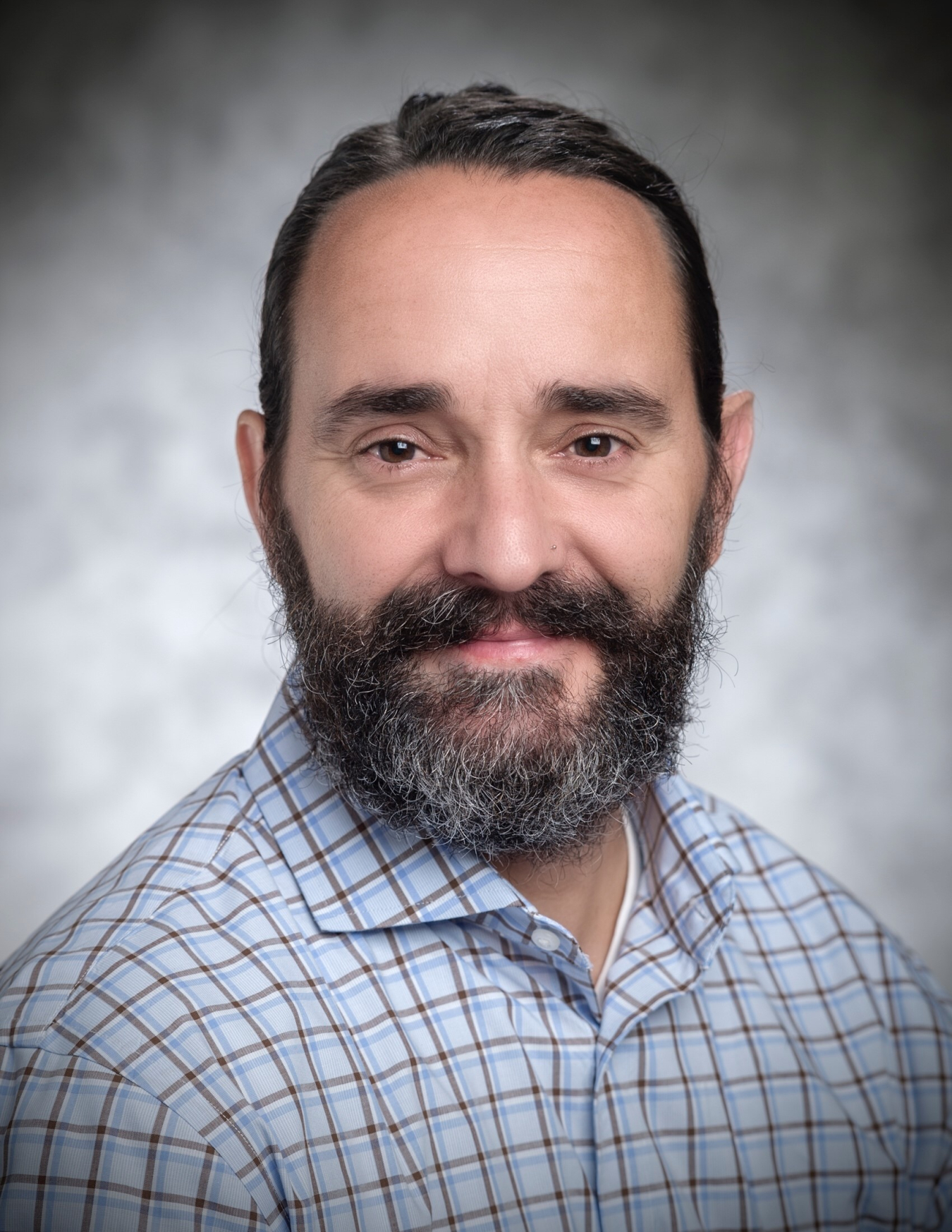An interview with Eric Boyle, whose work covers history, preservation, and archives.
August 6, 2020
In April 2020, U.S. Department of Energy (DOE) Historian Eric Boyle transferred to the DOE Office of Legacy Management (LM) from the Office of the Executive Secretariat, so that he could capitalize on LM’s history and archives resources. We caught up with Boyle to learn more about his role across the DOE complex and the skills and experience he brings to LM.
The DOE Historian role covers history, preservation, and archives. Tell us more about your work.
As a historian, I do a lot of different things. I provide historical information, both to staff across the DOE complex as well as to outside agencies. I work with a wide range of people who are interested in DOE history for various reasons — researchers, scholars, scientists, biographers, experts in nuclear proliferation and security, and students working on history projects. I also work with a lot of public officials at both state and local agencies.
As part of the historic preservation element of my role, I help develop and facilitate DOE-wide historic preservation planning. I’m involved in facilitating the Department’s compliance with the National Historic Preservation Act.
Lastly, with regards to archives, I manage more than 6,000 cubic feet of archives and reference materials in Germantown, Maryland. I use these records to answer questions, conduct research, and facilitate declassification of historical records.
You've been in this position for four years. What was your career path to DOE?
The path was a winding road. When I was in graduate school studying history, my plan was to become a history professor. I was unaware of other career options at that time and I didn’t even know that federal agencies have historians on staff. I came to Washington, D.C., for a postdoctoral fellowship at the National Institutes of Health, as my background is in the history of science, technology and medicine. Later, I got a job at the National Museum of Health and Medicine as an archivist.
But I missed working as a historian, and then the DOE job came up. In many ways, it was the perfect position for me. DOE was looking for someone who not only had a background in the history of science and technology, but also archives experience — that was me. I was really happy that I got the position, and it’s been all that I hoped it would be.
Why do you think it’s important for a government agency such as DOE to have a historian on staff?
I teach at the University of Maryland, and what I tell my students on the first day of class is that the value of history is that it provides you with an opportunity to step outside your own world to understand the world that people lived in in the past in a way that is empathic and instructive. And that allows you to think about and evaluate your own world.
The perspective that a historian can provide is particularly helpful for understanding the complexity of the world you live in now, and for a federal agency, the complexity of the federal landscape of which you are a part. You can’t really understand where an organization is without understanding where it’s come from and how it has developed and evolved over time. There are lessons to be learned from an agency's history — challenges, successes. Having that perspective can be incredibly valuable for the organization.
When the Department's original history program was set up in the late 1950s for the U.S. Atomic Energy Commission (DOE's predecessor agency), what they wanted was a trained historian to write the history of the Manhattan Project. Because the Manhattan Project was such a monumental effort and period in history, they wanted to be sure that story was captured by someone with training, perspective, and tools for writing about history.
How do you see yourself applying your skill set within LM?
The main thing that I'd like people to know is that I’m here, I’m a resource, and I’m happy to help. LM has the benefit of already having a historian on staff, Padraic Benson. The work he’s done has provided the baseline for work that I’ll continue to facilitate — my primary role is to support ongoing efforts that are already in place. That said, I think there’s a lot of opportunity to develop and create additional historical projects throughout the DOE complex, and I'd definitely like to be part of exploring some ideas for bringing those projects to fruition. I also have an extensive background in the area of education. I’ve taught at four universities and I’ve developed a wide range of online educational materials that are used by several federal agencies.
What do you consider the most interesting event or time in DOE's history?
For me, the period that’s the most fascinating is the origin. The Manhattan Project itself is such a fascinating story and time, with all sorts of amazing characters and monumental challenges faced, discoveries made, and things built. The sheer size of the project and diversity of people involved, and the spirit that motivated those people, is hard to match in terms of appeal and draw.
The Manhattan Project is a significant part of what I do as a historian — I answer a lot of questions related to the project, I’m involved with the Joint Park Management Team for Manhattan Project National Historical Park, and my office was intimately involved in the effort to stand up the park, which was in and of itself a monumental effort that took years of work. I think the Manhattan Project will continue to serve as a source of endless learning opportunities for me, and that’s always been one of the things I love most about history.

